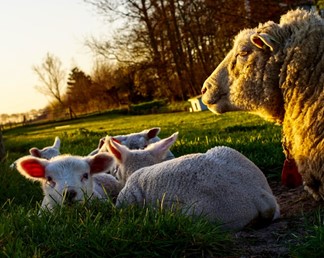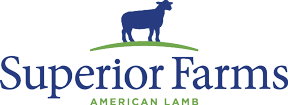Urban agriculture has emerged as a transformative trend in cities worldwide, and Denver is no exception. The integration of farming into the urban landscape is reshaping the way residents access food, engage with sustainability practices, and foster community connections. In the following article, Superior Farms in Denver explores the trend of urban farming in Denver, its impact on local food systems, and its contribution to sustainability.
The Rise of Urban Farming in Cities Like Denver
Urban farming plays a crucial role in fostering a sustainable and resilient food system, contributing significantly to the local economy. By producing locally grown produce and meats such as beef, pork, and lamb, urban farms ensure a steady supply of fresh, high-quality products to restaurants and markets throughout the city.
This not only reduces the carbon footprint associated with long-distance food transportation but also strengthens the community’s connection to their food sources. It’s better for the animals, and better for the people.
Local farms support Denver’s culinary scene by providing chefs with the freshest ingredients and high-quality proteins, enhancing the city’s reputation for farm-to-table dining. Economically, urban farming stimulates job creation, supports small businesses, and keeps money circulating within the local economy. This interconnected network of ranchers, producers, and consumers promotes food security, encourages sustainable practices, and enhances the overall well-being of the Denver community.
Historical Context
Historically, Denver has been a hub for agriculture, thanks to its strategic location and fertile plains. As the city expanded, traditional farming practices gave way to urban development. However, the recent resurgence in urban agriculture is a nod to Denver’s agricultural roots, reimagined for the modern urban environment.
Types of Urban Farming in Denver
Urban agriculture manifests in various forms, each contributing uniquely to the city’s food system and sustainability efforts.
Community Gardens
Community gardens are a staple of Denver’s urban farming landscape. These shared spaces allow residents to grow their produce, fostering a sense of community and shared responsibility. Organizations like Denver Urban Gardens (DUG) have been instrumental in establishing and maintaining over 180 community gardens throughout the city. These gardens provide fresh, locally grown produce, reduce food miles, and offer educational opportunities for urban dwellers.
Rooftop Gardens
Rooftop gardens are becoming increasingly popular nationwide, particularly in densely populated areas where ground space is limited. These green spaces not only produce fresh food but also help insulate buildings, reduce stormwater runoff, and mitigate the urban heat island effect. The GrowHaus, a non-profit indoor farm and educational center, exemplifies how innovative use of vertical space can transform urban food production.
Vertical Farming
Vertical farming takes urban agriculture to new heights, literally. Utilizing advanced technologies such as hydroponics and aquaponics, vertical farms can produce high yields in small footprints. Several companies are leading the charge in Denver, demonstrating how vertical farming can sustainably meet the city’s fresh produce needs year-round.
Impact on Local Food Systems
Urban agriculture has significantly impacted Denver’s local food systems, making fresh, healthy food more accessible and affordable.

Increased Food Security
By localizing food production, urban farming reduces the city’s reliance on external food sources, enhancing food security. This is particularly important in addressing food deserts—areas with limited access to affordable and nutritious food. Urban farms and gardens bring fresh produce to neighborhoods that otherwise might lack such resources.
Economic Benefits
Urban farming also generates economic benefits for the community. It creates jobs, supports local businesses, and stimulates the local economy. Farmers’ markets, farm-to-table restaurants, and local food cooperatives thrive alongside urban farming initiatives, creating a vibrant local food economy.
Educational Opportunities
Urban agriculture provides numerous educational opportunities for city residents as well. Schools, community centers, and non-profits use urban farms as living classrooms, teaching children and adults about nutrition, sustainability, and the importance of local food systems. Programs like those offered by The GrowHaus empower residents with knowledge and skills to grow their own food and make healthier dietary choices.
Contribution to Sustainability
Urban farming in Denver is a cornerstone of the city’s sustainability efforts, addressing environmental, social, and economic dimensions of sustainability.
Environmental Benefits
These local farms contribute to environmental sustainability by reducing the carbon footprint associated with food transportation and production. They promote biodiversity, improve air quality, and enhance urban green spaces. Composting organic waste on-site and using sustainable farming practices further reduce the environmental impact.
Social Cohesion
Urban agriculture fosters social cohesion by bringing people together around a common purpose. Community gardens and urban farms become social hubs where residents can connect, collaborate, and build stronger communities. This sense of community is essential for social sustainability, fostering a shared commitment to environmental stewardship and local resilience.
Conclusion
Urban agriculture is reshaping Denver, offering a blueprint for how cities can integrate farming into urban life to create healthier, more sustainable, and resilient communities. Through supportive policies, innovative farming practices, and community engagement, Denver is leading the way in urban agriculture. As more cities look to emulate Denver’s success, the lessons learned here will be invaluable in creating a sustainable urban future where everyone has access to fresh, local, and nutritious food.

